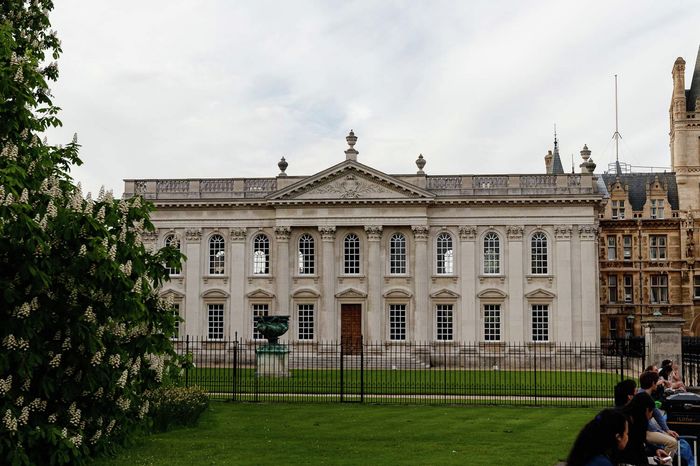Academics accuse Cambridge of illegality after forced retirement survives vote
A group of academics have claimed that the policy is illegal, despite the majority of voting staff electing to keep it last month

Academics have accused the University of illegality over its forced retirement policy, which was backed in a vote among staff last month, following a failed attempt to encourage academics to abolish it.
Simon Baron-Cohen, a psychologist specialising in autism and a Trinity fellow, told Varsity that the policy, which now forces academics to retire at the age of 69, is “ageist,” “immoral,” and “illegal”.
Last month, 64% of voting Cambridge staff elected to keep the policy and approve amendments proposed by the University, which pushed the retirement age back from 67, and abolished it for admin staff, excluding pro-vice-chancellors and the vice-chancellor.
The vote was held among the members of Cambridge’s Regent House, which comprises thousands of academic and admin staff at the University.
The University argues that the Employer Justified Retirement Age (EJRA) protects “intergenerational fairness and career progression” and advances “innovation in research and knowledge creation” by opening up more posts to early-career academics.
In a last-minute attempt to see the policy overturned, a group of academics submitted a motion to include an option for the abolition of the policy in the vote among academics, which was accepted by the Vice-Chancellor.
Over 900 staff voted to ditch the retirement age. Though this counted only 27% the vote, the academics behind the planned revolt have welcomed this support. Professor Baron-Cohen told Varsity: “In some ways the outcome is not a surprise because the University recommendation was disseminated widely through all official university communication channels, whilst the abolition position had no such opportunity.”
“Despite this, those voting for abolition numbered 900 members of the Regent House, which represents a huge increase since this was last tested in a vote,” he said.
Matthew Kramer, a professor of legal and political philosophy and another member of the abolition faction, told Varsity that “a mandatory retirement age imposed by any British employer is unlawful - unless it is a proportionate means of attaining some legitimate and important end”. He claimed that the abolition of the EJRA would only see the number of entry-level vacancies for academics decrease by 1-4%, which is “far to small to render the retention of a mandatory retirement age a lawful form of discrimination”.
Cambridge will attract “serious reputational damage and heavy legal expenses in its determination to cleave to an unlawfully discriminatory policy,” he said.
Baron-Cohen also claimed that the retirement age is illegal, adding: “In my view, one should not ask a group of people to vote for something that is illegal.”
The psychologist also highlighted a “moral” argument against the EJRA, saying: “Imagine saying we should forcibly retire women, or gay people, or disabled people, to create jobs for others. This would rightly be condemned as discrimination, yet Cambridge continues to justify age discrimination as a special case.”
Gillian R. Evans, another academic against the retirement age, told Varsity: “In two years’ time when those who would have been dismissed this September at 67 are facing their 69th birthdays, I expect this will be a heated controversy again, and perhaps abolition will win.”
But, the retirement age is vital for early-career academics at Cambridge, Nino Läubli, a postdoctoral researcher who contributed to the University’s review of the EJRA, told Varsity in May. He said: “The EJRA plays an essential role in the creation of new positions within the University, with the retirement age being an important trade-off to the unique independence and academic freedom offered by Cambridge’s established posts.”
Oxford, the only other UK university with a retirement age, has also faced backlash from academics. Last year, a legal tribunal found that Oxford was “not legally justified” in forcing out four 68-year-old academics.
The changes to the retirement age, approved by members of Regent House, will be implemented by the beginning of September, ahead of the new academic year.
A spokesperson for the University of Cambridge told Varsity: “The Regent House voted overwhelmingly to retain the EJRA for academic staff and increase the age at which it takes effect to sixty-nine. The turnout was high and followed extensive discussion, consultation and engagement across the university that reflected all views on this issue. The University will now take the necessary steps to implement the decision.”
 Music / The pipes are calling: the life of a Cambridge Organ Scholar25 April 2025
Music / The pipes are calling: the life of a Cambridge Organ Scholar25 April 2025 Arts / Plays and playing truant: Stephen Fry’s Cambridge25 April 2025
Arts / Plays and playing truant: Stephen Fry’s Cambridge25 April 2025 Comment / Cambridge builds up the housing crisis25 April 2025
Comment / Cambridge builds up the housing crisis25 April 2025 Interviews / Dr Ally Louks on going viral for all the wrong reasons25 April 2025
Interviews / Dr Ally Louks on going viral for all the wrong reasons25 April 2025 News / Candidates clash over Chancellorship25 April 2025
News / Candidates clash over Chancellorship25 April 2025






